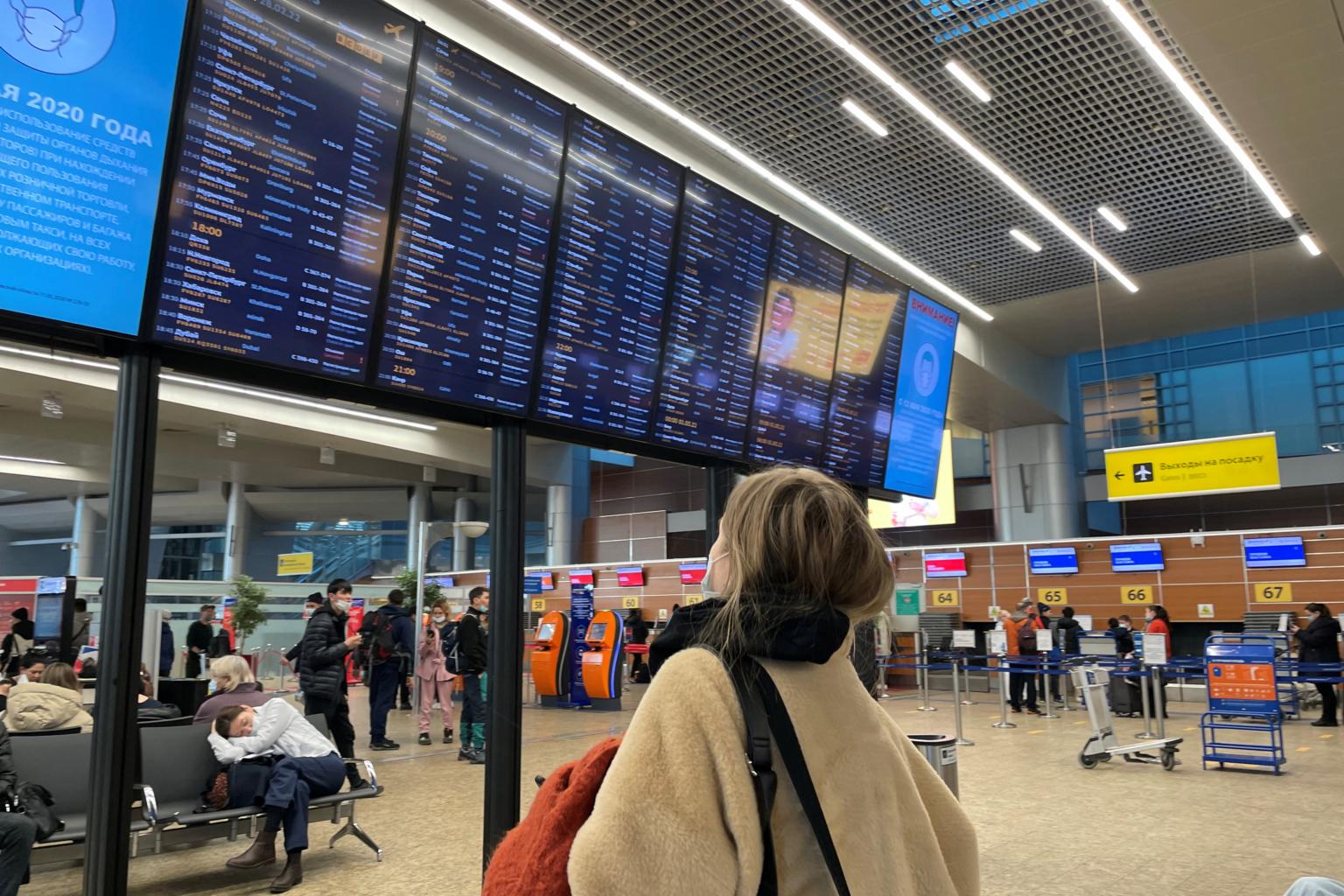Airspace closures after Ukraine invasion stretch global supply chains
Sign up now: Get ST's newsletters delivered to your inbox

A passenger at Moscow's Sheremetyevo airport looking at the departures board after Russia closed its airspace to airlines from 36 countries, on Feb 28, 2022.
PHOTO: REUTERS
SYDNEY (REUTERS) - Global supply chains, already hit hard by the coronavirus pandemic, are facing further disruption and cost inflation as airspace closures after Russia's invasion of Ukraine affect the air freight industry.
Transport between Europe and North Asian destinations, like Japan, South Korea and China, has become particularly problematic due to reciprocal airspace bans that bar European carriers from flying over Siberia and Russia airlines from flying to Europe.
Airlines responsible for moving around 20 per cent of the world's air cargo are affected by those bans, Cargo Facts Consulting managing director Frederic Horst told Reuters on Tuesday (March 1).
Germany's Lufthansa, Air France KLM, Finnair and Virgin Atlantic have already cancelled north Asian cargo flights over airspace issues, though major Asian carriers like Korean Air Lines and Japan's ANA Holdings are still using Russian airspace, as are Middle Eastern airlines.
Pure cargo carriers like Russia's AirBridgeCargo Airlines and Luxembourg's Cargolux are also subject to the airspace bans, in a move that could send air freight rates - already elevated due to a lack of passenger capacity during the pandemic - soaring further.
In December, air cargo rates were 150 per cent above 2019 levels, according to the International Air Transport Association (Iata), adding to inflation affecting industries and economies around the world.
Sanctions imposed on Russia in the wake of its invasion of Ukraine are expected to further disrupt global supply chains.
Russia's AirBridgeCargo alone moves just under 4 per cent of global international air cargo, with most of that between Europe and Asia, Mr Horst said.
"All up you could be looking at perhaps a quarter of air cargo between Asia and Europe needing to find alternate means of transportation," he said.
"Yields are high enough that flying a longer route via South-east Asia, South Asia or the Middle East is an option, but it will still pull capacity out of the market."
Demand for air cargo last year was 6.9 per cent above 2019's pre-pandemic levels, according to Iata, as e-commerce surged during the pandemic and shipping container shortages and port bottlenecks led to more products being flown by air.
In December, air cargo rates were 150 per cent above 2019 levels, Iata said.
Asia-North America cargo routes are expected to be less affected than European routes, analysts say, because many carriers already use Anchorage, Alaska as a cargo hub and stopover point.
Japanese automakers Toyota Motor and Nissan Motor said on Tuesday they were keeping an eye on any disruption to supply chains as a result of what Russia calls its "special operation" in Ukraine.
United States-based United Parcel Service and FedEx, two of the world's largest logistics companies, have halted deliveries to Russia.


